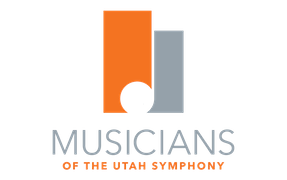Do you mind if we clap between movements?
This is an interesting question, and one which would, I imagine, elicit many different responses from individual musicians. Up until the end of the 19th century, applause was both encouraged and appreciated between movements, sometimes even during the music. Performers may have even repeated a movement mid-performance if the incessant applause demanded it. Near the turn of the century, applause between movements came to be regarded as detrimental to the unity of the work as a whole.
Personally, I have always had mixed feelings about this. I feel that if a movement ends in a way that warrants applause, there’s no harm in clapping. On the other hand, the endings of many beautiful slow movements create an atmosphere in which the musicians and audience can easily lose themselves in a state of quiet, contemplative serenity. It is best not to clap during moments like these, for fear of destroying the atmosphere we’ve all (the composer, the musicians, and yes, the audience) worked so hard to create.
Perfect examples of both of these types of movements occur in Tchaikovsky’s Symphony No. 6 (“Pathetique”). The third movement is a rousing march, which grows to a deafening climax and ends with a flourish. It isn’t the last movement, but more often than not, the audience bursts into frantic applause. And why wouldn’t they? It is that type of piece. To me, this inevitable clapping only serves to heighten the contrast between this exciting, energetic movement, and the following deeply depressed, even disturbing, final movement. Instruments gradually drop out as the movement eventually fades to black; the celli quietly sustain long notes in their lowest register until the gentle pulsations from the basses cease. Even though this is the end of the symphony, there usually ends up being a moment of total silence due to the intuition of the audience, who are reluctant to disturb Tchaikovsky’s darkly magical atmosphere with applause. As long as the applause or lack thereof is consistent with the atmosphere of the music, I trust the instincts of the audience in judging when and when not to clap, be it between movements or at the conclusion of the entire work.
Do you actually enjoy playing that awful modern stuff?
As a matter of fact, I do. It’s really not awful. Like all music, some modern music is better than other modern music. Many of the great composers, whose music is part of the standard repertoire today, were once considered “awful” and “modern.”
Much of this music is quite interesting and musically rewarding. I almost feel that we, the musicians, have an advantage over the audience when it comes to appreciating this kind of music. Like a lot of music (both modern and not), it often takes repeated listens to fully appreciate the harmonic/rhythmic structure, and the instrumentation. It is for this reason that occasionally you will hear modern pieces (particularly shorter ones) performed twice, in order to give the audience a second chance to appreciate the work. Our rehearsal process provides us with an opportunity to dissect these pieces and really get to know them. By the time we perform them, we’ve already become familiar with the piece’s defining characteristics, while the audience is hearing the music for the first time. I encourage you, the listener, to listen with an active, open mind. By dismissing a piece of music at the first sign of a dissonant (“ugly”) sonority, you may be missing out on a listening experience every bit as rewarding as one of the more traditional masterworks.
Do people in the orchestra get along? Do they hang out?
In general, people in the orchestra get along well. Disagreements happen, as they do in any workplace. But what makes our workplace different is that we are all bonded by a shared passion for what we create.
As far as “hanging out”, simply put, many of us do. This is not to say people don’t have friends outside of the orchestra. There are people in every stage of life in the orchestra. Somebody with a spouse and children may have less time to hang out than a twenty-something recently out of music school.
When I got the job and subsequently moved here, I didn’t know anybody. The first people I met were at my first symphony rehearsal, and they were very welcoming. Other people’s experiences may differ from mine, but I have to imagine many new musicians are in essentially the same boat once they move here and begin playing in the symphony.
-Alex Martin
